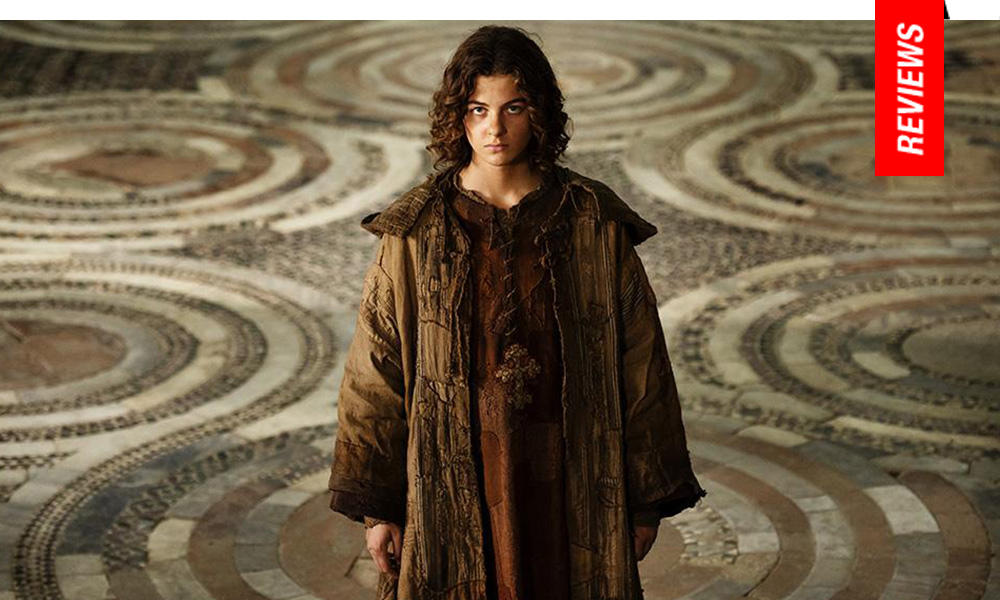Sister and Her Sisters: Nicchiarelli Salutes a Saint in Solemn, Dull Period Reenactment
The film’s holier than thou energy is a chore to sit through, lacking the requisite age progression of both Saints to convey the passage of time and eventually the testing of their ideals by a hierarchical religion which hardly condones equanimity between genders in its dependance on fear based devotion.
The year is 1211. Eighteen-year-old Chiara (Margherita Mazzucco) has run away from her wealthy family alongside Pacifica (Flaminca Macin) to join her childhood friend, Francesco (Andrea Carpenzano), better known as St. Francis of Assisi, to join his religious commune dedicated to living in poverty and without hierarchy. Their shared vision initially inspires a myriad of like minded people, with Chiara’s reputation as a healer sweeping the region. The church itself isn’t so keen on the idea of women having any kind of privilege or power outside of a nunnery, and pressure is put upon Francis. In exchange for publishing a Rule recognized by the church, Francis determines a separation of the sexes is necessary, which automatically makes Chiara and her followers vulnerable. But time heals all wounds, and Chiara is positioned to seize an opportunity, eventually anointed St. Clare of Assisi.
Nicchiarelli’s treatment is a far cry from Roberto Rossellini’s The Flowers of St. Francis (1950), with her casting of Andrea Caprenzano, who transforms the famed persona into a handsome recreation Pasolini might have generated. His relationship with St. Clare was previously examined in Franco Zeffirelli’s 1972 film Brother Sun, Sister Moon, with Judi Bowker as Clare (and Alec Guinness scoring an Academy Award nomination as Pope Innocent III).
Nicchiarelli’s age progression is almost entirely absent, even though Francis suffers debilitating health issues, and Margherita Mazzucco seemingly doesn’t age at all. Ultimately, Chiara plays like a fervent, religious fantasy desperate to reclaim the legacy of St. Clare, which is an honorable recuperation in itself, but the earnestness of the tone tends to make a lot of this laughable, as supporting friars moon about with dreamy smiles and daft personalities. Mazzucco surely carries the film the best she can, while Nicchiarelli’s script does cohesively outline what the struggles and aims of her mission were.
With Francis’ equanimity eventually cast aside due to Cardinal Ugolini’s (Luigi Lo Cascio, concurrently in Gianni Amelio’s Lord of the Ants) evident disdain for women, and such sentiments were supported by the church, Clare and her ‘minor sisters’ are eventually aligned with the church’s wishes when Ugoloni becomes Pope (in one of the scene’s most ridiculous exchanges as the new Pope garishly masticates all the sisters’ gourmet dishes). Clare sacrifices freedom by agreeing to be cloistered, and in exchange, be the first woman to publish a recognized Rule within the church.
Again, there’s a significant history worthy of a narrative feature, but as recuperation of the period, its attitudes and its visual accuracy, something more along the tonal lines of Vision (2009), Margarethe von Trotta’s biopic of Hildegard von Bingen, the German nun and visionary, might have allowed Chiara to feel less like a series of distracting vignettes doused in anachronisms.
Reviewed on September 9th at the 2022 Venice Film Festival – In Competition. 106 Mins.
★/☆☆☆☆☆
